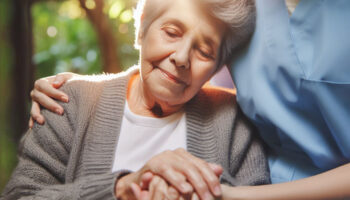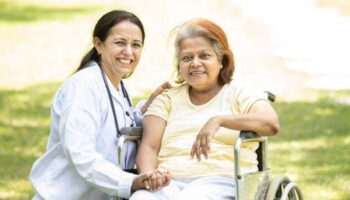Skin cancer takes the 19th place in the most common cancers list. As per the journal published by American Cancer Society-2020, an estimated 19.3 million new cancer cases occurred worldwide, including 1.2 million non-melanoma skin cancers. The number indicates a sudden surge in skin cancer cases. Observed in both men and women, skin cancer is more prevalent in elders who are above 60-65 years.
Skin cancer cases are relatively low in India and it is more prevalent in western countries. However, it demands awareness from the senior age groups. The World Cancer Societies observe May as the Skin Cancer Awareness Month and take initiatives to increase awareness on signs, symptoms, treatment, recovery, and preventive measures for skin cancer. Stay with us until the end of the blog to know everything you should know about skin cancer.
What is skin cancer?
Skin cancer occurs as a result of the abnormal growth of the skin cells. Mostly developed in the skin spots that are constantly exposed to UV rays from the skin, the cancer can also occur at any part of the skin. Almost all types of skin cancers originate from the epidermis cells. Unlike most cancers in the body, skin cancer does not spread to the other parts or organs.
Who is at the risk of skin cancer?
The exact causes for skin cancer are unknown, however, it is suspected that the following causes or combinations of them can lead to skin cancer in many people.
- UV light exposure: People with fair-skin, blonde hair, hazel or blue eyes are vulnerable to skin cancer. People with these physical characteristics have higher chances of developing skin cancer when exposed to tanning beds or even to the direct sunlight.
- Chemical Exposure: Exposure to carcinogenic chemicals such as arsenic, and ionized radiation, also known as x-rays, can improve the chances of various types of skin cancer.
- Suppressed Immune System: Medications used for chronic underlying conditions such as HIV/AIDS can lead to skin cancer. Also, chemotherapy used as part of other cancer treatment can cause skin cancer.
- Elderly patients, especially with a history of skin cancer, have 20% more chances to develop the cancer again in the next 1-2 years.
The most common cause for skin cancer is genetic mutation in the skin cells triggered by the ultraviolet light invasion. It is important to learn the early signs of cancer in order to get treatment. Early detection is the key for the desired treatment outcome.
What are the signs of skin cancer?
The signs and symptoms of skin cancer might slightly vary from the type of cancer (you will know more about the types in the latter part of the blog). Here are the most common cancer signs and symptoms.
- Shiny pink, red, or translucent bumps on the skin
- Reddish patchy skin that is not painful
- Open sores and bumps that do not go away for more than a month
- A wart-like growth that grows faster than the regular warts on skin
- Bumps and patches that are crusted in the center
Most of the signs of skin cancer are identical with other skin conditions and underlying medical issues. Check with your skin care specialist if you are feeling something unusual about your skin.
What are the types of skin cancer?
There are various types of skin cancer based on the origin of development, spread and other characteristics. Here are the most common cancer types.
- Basal cell carcinoma: Known as the most common type of cancer, there are various subtypes in basal cell carcinoma. This type of cancer mostly appears in the areas where your skin is exposed to the sun.
- Squamous cell carcinoma: Apart from appearing on the sun exposed areas, this type can occur inside the mouth and in the region around the genitals.
- Melanoma: It is not the most common type like the two other cancers above but the most serious. This type can be found anywhere on the body even in the eyes.
What is the treatment for skin cancer?
Like other cancers, the cancer lesions can be removed through surgical procedures if found in the early stages. Cryosurgery, curettage and electrodessication, topical preparations such as imiquimod and 5-fluorouracil creams, and excisional surgery are a few invasive and non-invasive procedures doctors commonly employ as part of skin cancer treatment.
How can seniors prevent skin cancer?
As aging seniors are at risk of skin cancer, it is important for them to follow these preventive measures by supporting with a healthy diet and lifestyle habits.
- It is important to stick to a low sodium diet for seniors
- Vitamin D deficiency in seniors is a serious issue. Seek medical help if you have been diagnosed with vitamin deficiency.
- Practice healthy hygiene and skin care for seniors with the help of skilled nursing care specialists.
Staying cheerful while aging avoids many health conditions. If you are a senior citizen living all by yourself, it is time to re-engage with life by considering the assisted living facilities that provide a healthy aging atmosphere for seniors.





